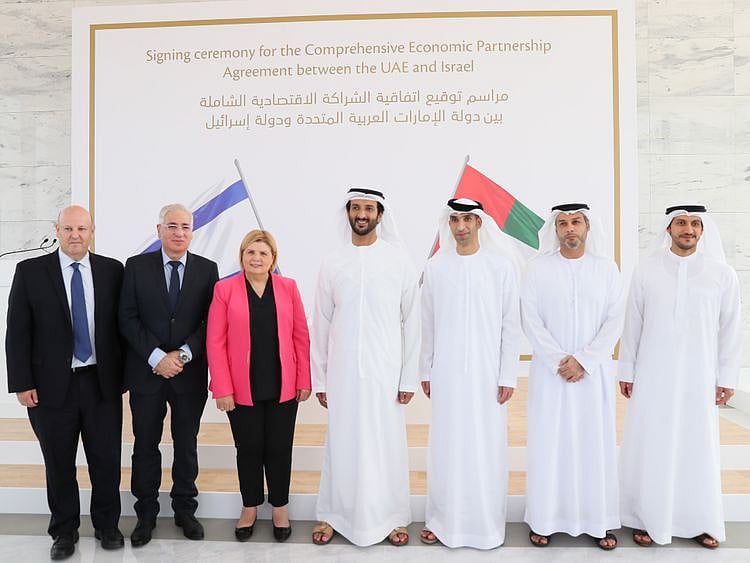UAE-Israel CEPA to become operational on April 1
The deal aims to push bilateral trade beyond $10b within five years

Abu Dhabi: The UAE-Israel Comprehensive Economic Partnership Agreement, which was signed on May 31, 2022, will come into effect on April 1, 2023. According to the agreement tariffs will be removed or reduced on more than 96 per cent of product lines, which covers 99 per cent of the current value of traded goods between the UAE and Israel.
The UAE-Israel CEPA is the second of the UAE’s new foreign-trade deals to be ratified following the successful roll out of the UAE-India CEPA in May 2022. “In addition to the new tariff structures, the agreement with Israel removes unnecessary barriers to trade, improves market access for services suppliers, opens opportunities in government procurement, and provides a platform for SMEs to expand internationally,” the ministry said on Thursday.
The CEPA is designed to push UAE-Israel non-oil bilateral trade from the $1.3 billion recorded in 2021 to $10 billion by the end of the decade. In 2022, bilateral non-oil trade reached $2.49 billion, a 90 per cent increase on 2021’s total, with re-exports from Israel growing 71.2 per cent and non-oil exports to Israel climbing 48.6 per cent.
Sign up for the Daily Briefing
Get the latest news and updates straight to your inbox
Network Links
GN StoreDownload our app
© Al Nisr Publishing LLC 2026. All rights reserved.